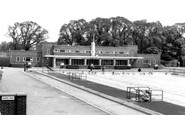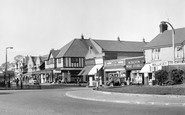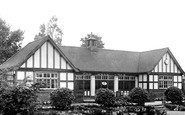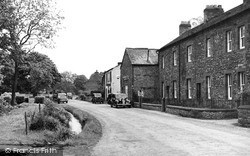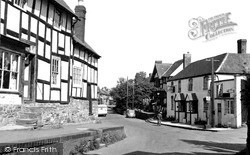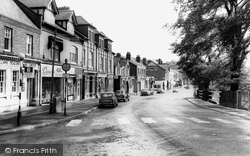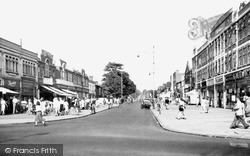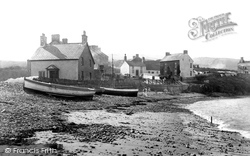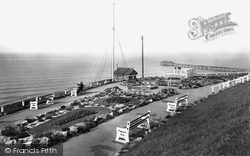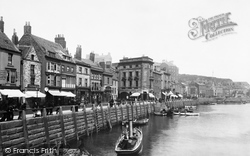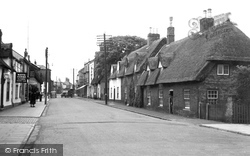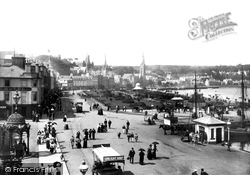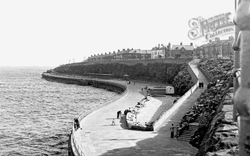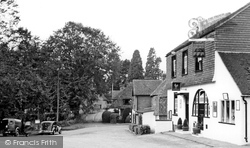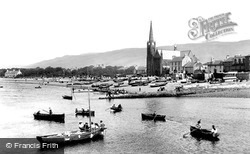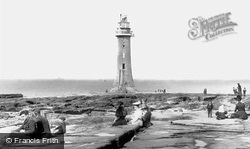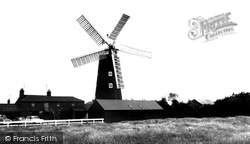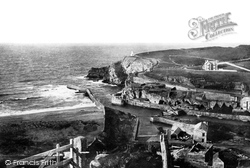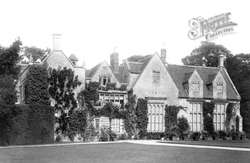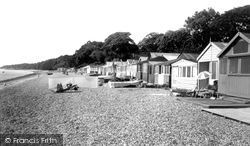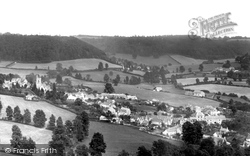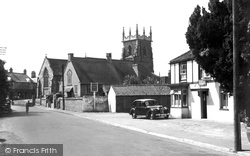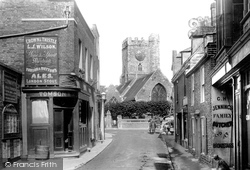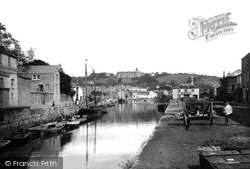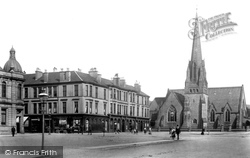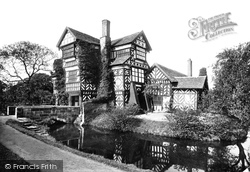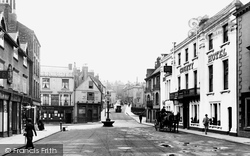Photos
Sorry, no photos were found that related to your search.
Maps
40 maps found.
Books
Sorry, no books were found that related to your search.
Memories
247 memories found. Showing results 21 to 30.
Kingsbury Road Prefabs
We lived in the prefabs in Kingsbury Road from 1955 until 1961, when we moved to Maple Grove off Church Lane. I remember taking our pets to the PDSA van in the swimming pool car park, which was a 300 yard walk for us. As well ...Read more
A memory of Kingsbury in 1958 by
Hinton Blewett 1945 1946
I first saw Hinton Blewett on a late September day when arriving at my prep school, Colchester House. This was housed in Hinton Blewett Manor, which was its wartime home. Its true home was in Clifton, Bristol but that ...Read more
A memory of Hinton Blewett in 1945 by
Big Christmas Tree In The Cross, Moreton
One of my fondest memories is of the big Christmas tree at Moreton Cross all lit up, you could see it way up Pasture Road in the dark and to a small child it was magic. I also loved the great hot ...Read more
A memory of Moreton in 1958 by
The Day I Was Born
I was born on 22nd June 1948 at 95 Dryfield Road in the front main bedroom of my nans's house. We lived there until I was 8 when we left my nan's and moved to St. Johns Wood in London. My nan lived there until I was in my teens ...Read more
A memory of Burnt Oak in 1948 by
Our Street
Our Street was named Aston Street at the back of the Kings Arms pub in Rochdale Road. It was an amazing little street with a tripe shop and pies at the top of the street, a garage next door which housed Johnny Raffo's Ice Cream Vans, ...Read more
A memory of Collyhurst in 1949 by
The Old Man At Waggoners Wells
The person was probably 'Tiny' who was the National Trust warden. He was also an entertainer who regaled us with stories and jokes of the local area. We met him when we lived at Ford Cottage in the early 1950s. He had names for the swans and each of the cygnets on the second pond.
A memory of Waggoners Wells by
My Childhood Days Brynna Boy
8 Southall Street /16 Tan-y-Bryn. We, the Brynna Boys, used to run to school, Mr & Mrs Davies Head Master and thei two daughters, strict and friendly, firm and kind. I can only describe those happy days, Coronation ...Read more
A memory of Brynna in 1953 by
Living In Stratford During The London Blitz 1940 41
I remember living at no 41, Louise Road, Stratford E15, during the Blitz, and attending Water Lane School. At school each day as the teacher called out our names for Attendance, I noticed how each ...Read more
A memory of West Ham in 1940 by
Sunday At The Dell
During the long summer Sundays of 1947, the pleasures that were afforded by many Doncastrians were few and far between.Sunday, being a non-work day for the man of the house (if not the woman, Sunday dinner to make, pots to wash, ...Read more
A memory of Doncaster in 1947 by
Cranford Shops 1980s 2010
Starting from Tesco Express: This used to be a block of about 2 or 3 shops which included a building society and a travel agent. Next to this was Barclays Bank which closed down in the late 1980s/early 1990s. It remained ...Read more
A memory of Cranford
Captions
98 captions found. Showing results 49 to 72.
Though cars were more affordable by the 1950s, engines, being thirstier by today's standards, needed more frequent refueling.
Elsewhere people paid to follow fashion and cover their houses with bricks; here that was a luxury few could afford.
The town developed in the 19th century as a suburb of Manchester for those who could afford to live away from the smoke and grime, and could also spare the time to travel.
In the centre is a motorbike and sidecar, a popular and affordable form of transport.
Some of these houses were owned by sea captains, who could afford to build a substantial two-story house. It is said that almost every boy from Borth went to sea.
Magnificent sea views are afforded from the Promenade, down the north coast in the direction of Hartlepool and beyond, hence the name of these gardens.
The second shop from the left is T E Clegg's shoe shop; how many fisher families could have afforded shoes?
The thatched cottages of one or one and a half storeys with dormer windows are more villagey in character: there are remarkably few thatched houses in towns, but in Alford even the Manor House is thatched
Rothesay is the chief town of the County of Bute, and is situated in a well-formed bay, which affords safe anchorage in high wind.
The railway also turned Whitley Bay into commuter country for those who could afford to escape the grime of Newcastle.
But in the 16th century, Alford was also a major glass-making centre. The tile-hung Crown Inn on the Loxwood Road was on the smuggler's route from Sussex to the north.
There is now a golf course here; and the shelter afforded by the Great Cumbrae makes Largs a first-rate place for boating. Largs commands a magnificent view of Arran.
The pier affords fine views of the shipping and docks of Liverpool, the Irish Sea, and the mountains of Wales.
Built in 1813 by Oxley of Alford, it is a five-sailer owned by the County Council and often open to the public.
A rough sea is coming onto the beach, but the pier affords protection to the dangerously narrow harbour entrance beneath the cliffs.
At the end of the 18th century, much of the village was in disrepair because the previous owners, the Mordaunt family, were unable to afford the upkeep towards the end of their tenure.
Calshot has long been popular with local people and holidaymakers for the views it affords of Southampton Water.
Standing some 800ft up, rising in green terraces above the village, it affords panoramic views with the erosion caused by rivers and frost action during the Ice Ages evident in the isolation of the
Alford is a most attractive small market town on the eastern edge of The Wolds, noted for its thatched Manor House in West Street, a 16th-century hall house with crosswings, all encased in brick in 1661
As a result it was afforded the rare privilege of flying the White Ensign.
Now known as Truro School, the college was founded on the hill overlooking the city 10 years before this photograph was taken, 'affording a thorough English education at a moderate cost' for up to 120
Sir James Colquhoun of Luss developed Helensburgh in the late 18th century as a residential district for those who could afford not to have to live any nearer to Glasgow than was absolutely necessary.
Its survival in its near-original form probably owes much to the fact that its owners were often very stretched for cash and could never therefore afford to alter it, add bits on to it or change it in
That at No 30 is of particular interest; it afforded the occupants the very best of views of the public hangings that used to take place on Court Green.
Places (2)
Photos (0)
Memories (247)
Books (0)
Maps (40)

